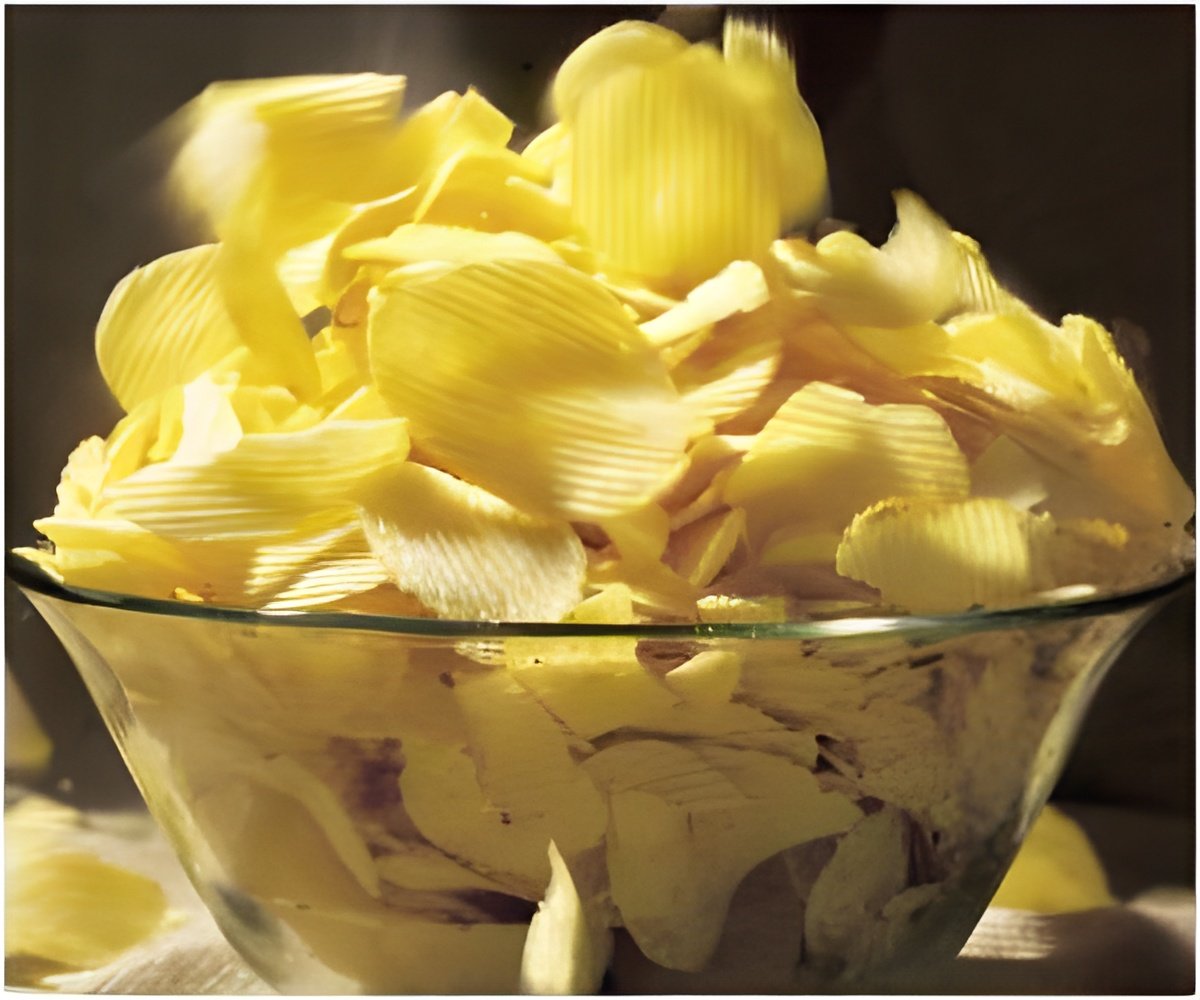-
 play_arrow
play_arrow
Radio Rehoboth
Healthier Choices: PepsiCo India’s Palm Oil Replacement in Lay’s Chips



PepsiCo India has embarked on a significant trial to substitute palm oil and palmolein with a blend of sunflower oil and palmolein in its Lay’s chips. This strategic decision comes amidst growing concerns over the usage of cheaper and less healthy ingredients in packaged foods within the Indian market. The move not only addresses consumer health preferences but also aligns with global standards upheld by PepsiCo, as observed in its operations in the United States (1✔ ✔Trusted Source
PepsiCo (beverages)
Go to source
).
In India, the utilization of palm oil and palmolein in packaged foods has been a prevalent practice due to its cost-effectiveness compared to alternatives like sunflower or soybean oil. This trend extends across various product categories, including salty snacks, biscuits, chocolates, bread, and ice cream. However, recent scrutiny and consumer demand for healthier options have urged companies to reevaluate their ingredient choices.
Advertisement
PepsiCo’s Approach:
Contrasting its Indian operations, PepsiCo in the United States emphasizes the use of “heart-healthy” oils such as sunflower, corn, and canola oil for Lay’s chips. The company’s commitment to consumer health is evident in its messaging, which highlights the benefits of mono- and polyunsaturated fats present in these oils for cholesterol management (2✔ ✔Trusted Source
Uneven dietary development: linking the policies and processes of globalization with the nutrition transition, obesity and diet-related chronic diseases
Go to source
).
By initiating trials to replace palm oil with a blend of sunflower oil and palmolein, PepsiCo India demonstrates a proactive stance towards addressing consumer concerns regarding ingredient quality and health implications. The move not only positions Lay’s chips as a healthier snacking option but also distinguishes PepsiCo as one of the few players in the Indian food industry undertaking such initiatives.
Advertisement
Salt Content Reduction Efforts:
In addition to reformulating its oil composition, PepsiCo India is committed to reducing the salt content in its snacks below 1.3 mg of sodium per calorie by 2025. This proactive measure aligns with global health recommendations and underscores the company’s dedication to promoting healthier eating habits among consumers.
Advertisement
Industry Critique and Global Disparities:
The shift towards healthier ingredient alternatives in developing nations like India reflects broader criticisms directed at multinational packaged food companies. Discrepancies in ingredient quality and nutritional standards between markets have sparked debates regarding ethical and health implications. The case of Nestle India’s response to sugar levels in its infant food Cerelac exemplifies the challenges faced by multinational corporations in balancing market demands and health considerations across diverse regions.
Differentiating Palm Oil and Palmolein:
Understanding the distinction between palm oil and palmolein is crucial in evaluating the impact of ingredient substitutions. While both are derived from the oil palm fruit, palm oil is semi-solid due to its high saturation of saturated fats, whereas palmolein is a liquid form obtained through further processing. The transition to a sunflower oil and palmolein blend offers a compromise between health-consciousness and product functionality.
In summary, PepsiCo India’s trials to replace palm oil in Lay’s chips signify a strategic response to evolving consumer preferences and health concerns. By aligning with global standards and prioritizing ingredient quality, the company aims to enhance the nutritional profile of its products while maintaining market competitiveness. As the food industry continues to navigate challenges related to ingredient sourcing and consumer health, initiatives like these underscore the importance of proactive innovation and consumer-centricity.
References:
- PepsiCo (beverages) – (https://www.newsnow.co.uk/h/Industry+Sectors/Food+&+Drink/Beverages/PepsiCo)
- Uneven dietary development: linking the policies and processes of globalization with the nutrition transition, obesity and diet-related chronic diseases – (https://www.ncbi.nlm.nih.gov/pmc/articles/PMC1440852/)
Source-Medindia
Go to Source:https://www.medindia.net/news/healthier-choices-pepsico-indias-palm-oil-replacement-in-lays-chips-215692-1.htm
Author:
Written by: RSS
Similar posts
-

Daybreak Morning Show
Hosted by Jeff Balk
Join Jeff Balk for all the news and information you need to know to start your day and enjoy your stay in Rehoboth Beach, Dewey Beach and the Lewes areas with special featured guests from our non-profits, businesses and art communities.
close Chart
Top popular

News Briefs 10/17/23
Board of Commissioners Workshop & Special Meeting – November 6

Six Sussex road projects considered in latest CTP
NFL Week 17 highlights: Packers, 49ers, Saints, Steelers win, Cardinals stun Eagles
Knicks vs. Cavaliers prediction, odds, line, spread, time: 2023 NBA picks, Nov. 1 best bets from proven model
Copyright 2023 East Sussex Public Broadcasting, Inc.




